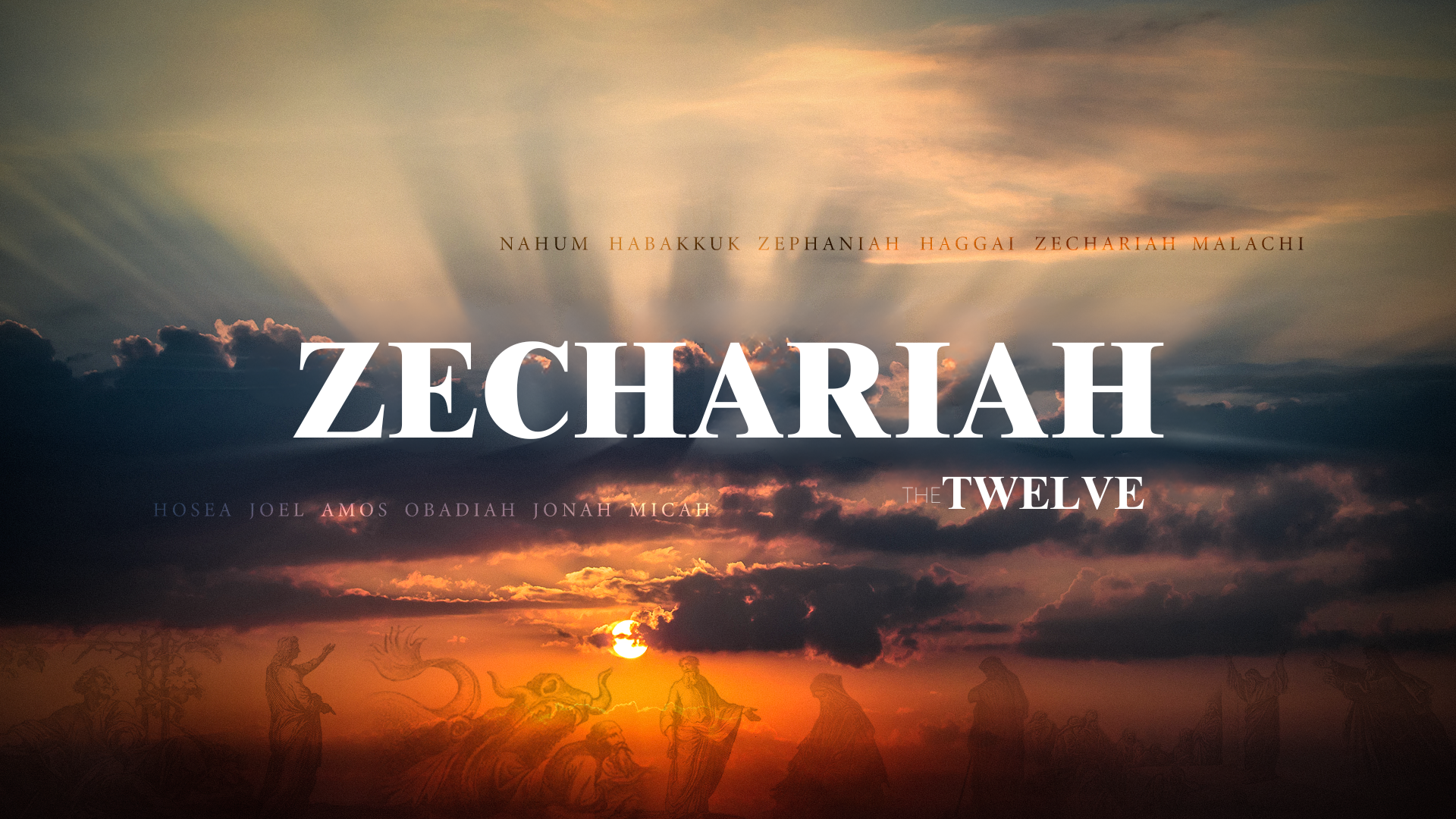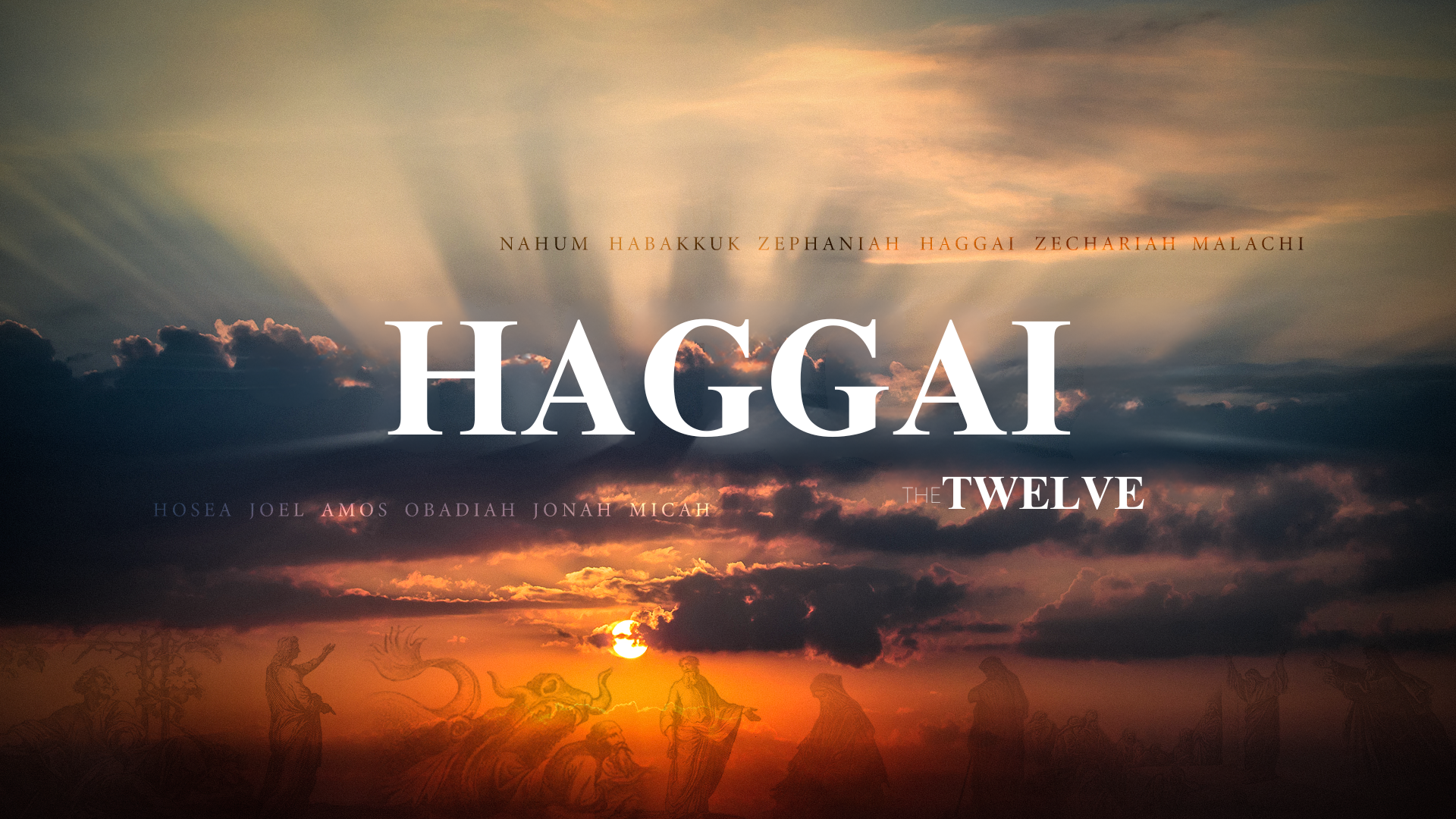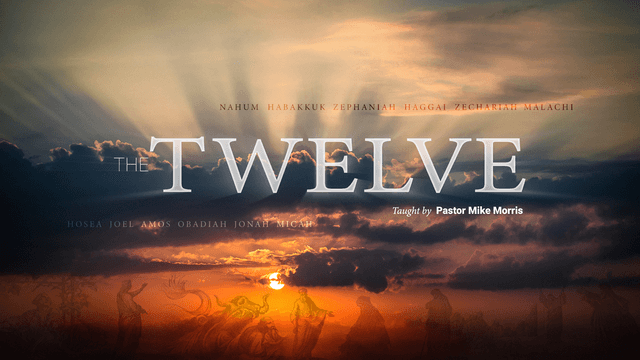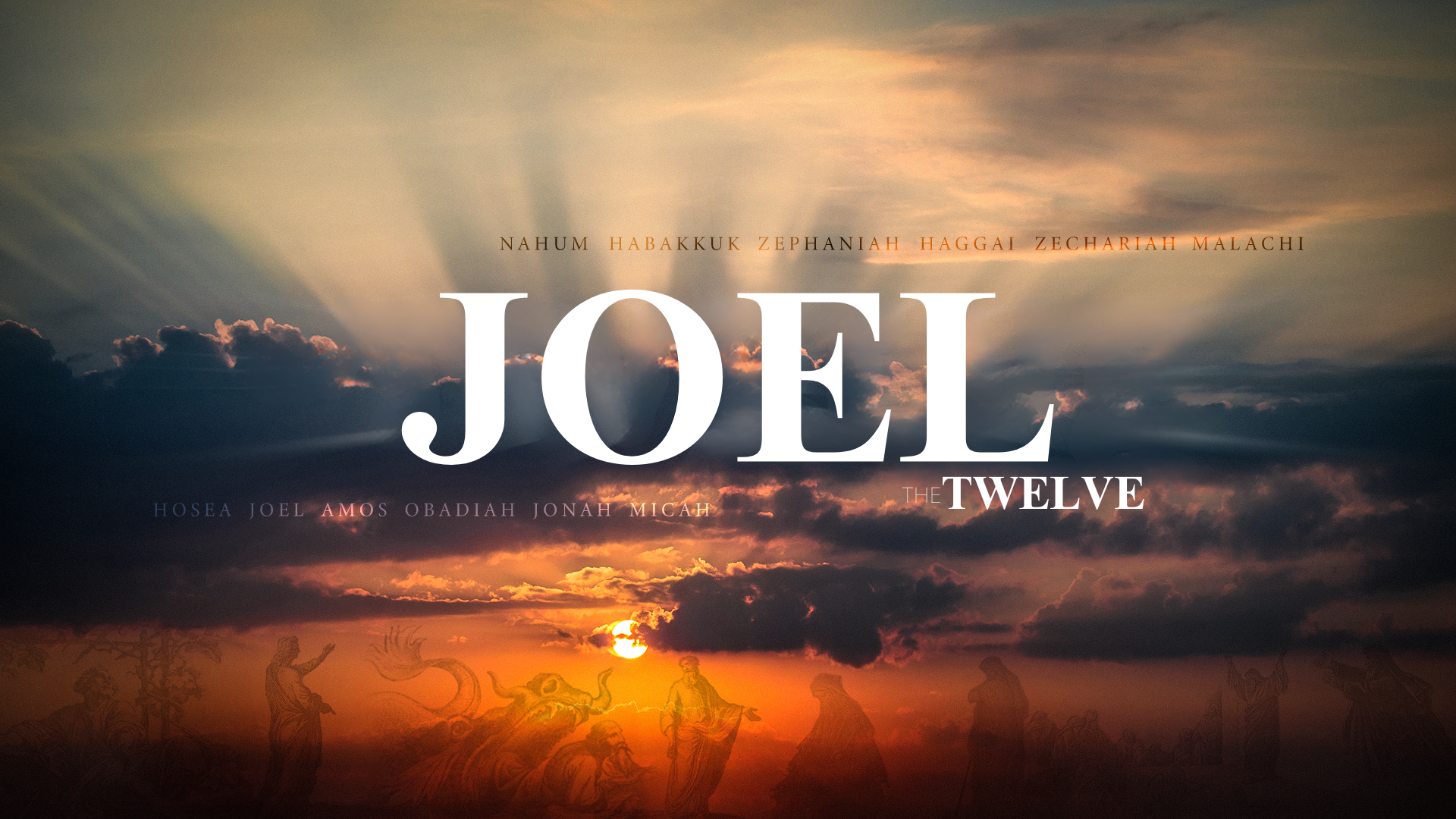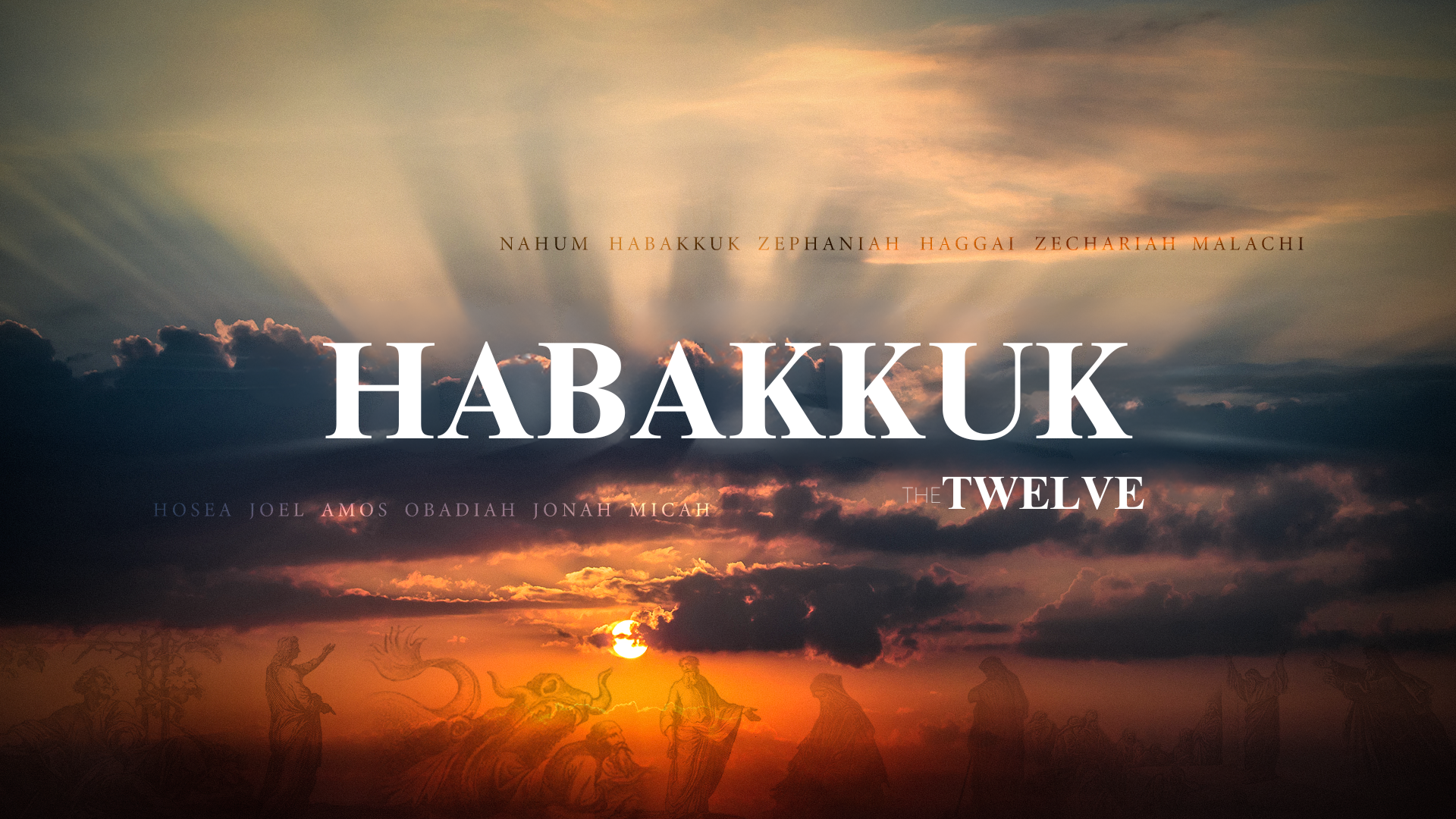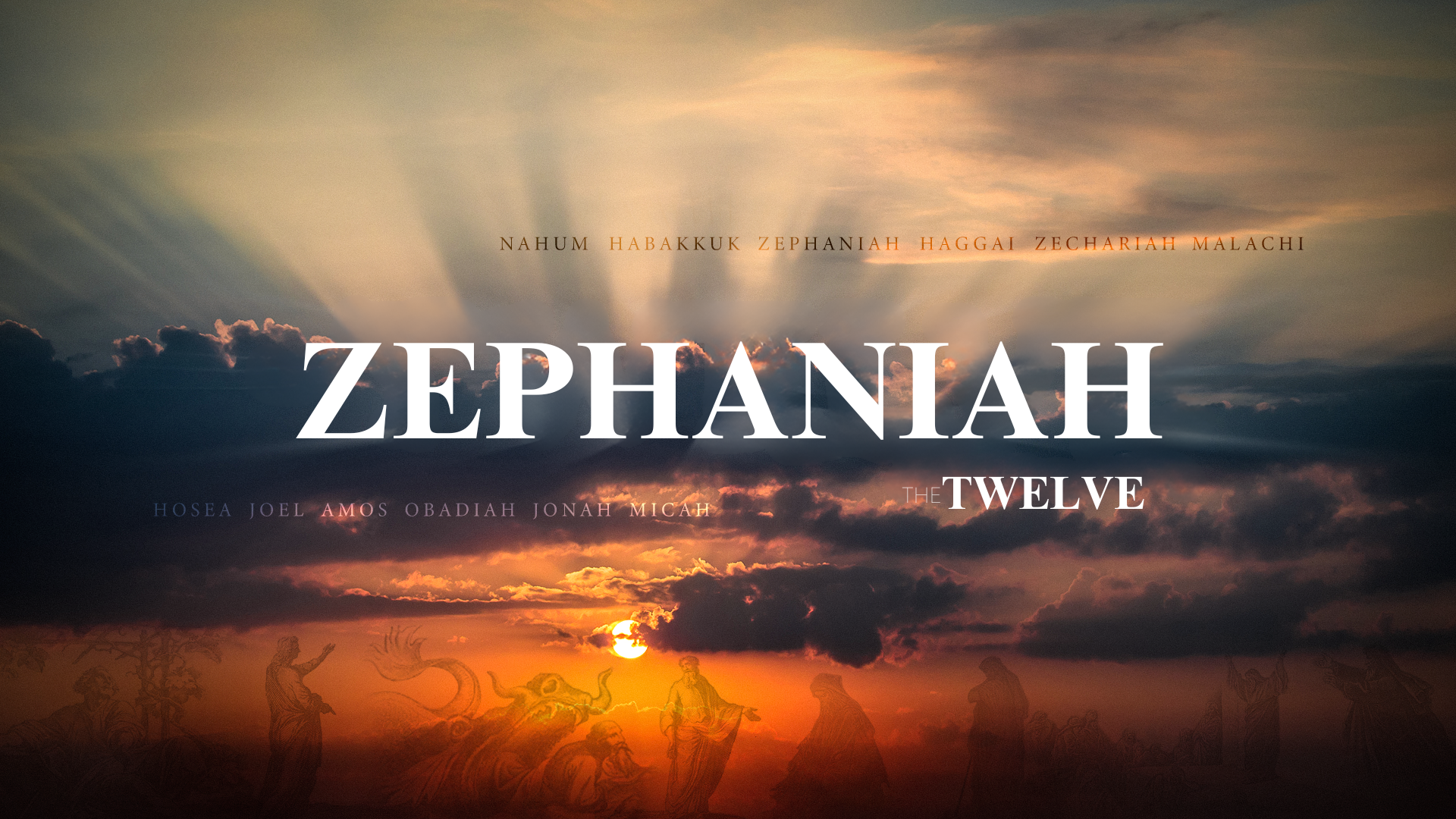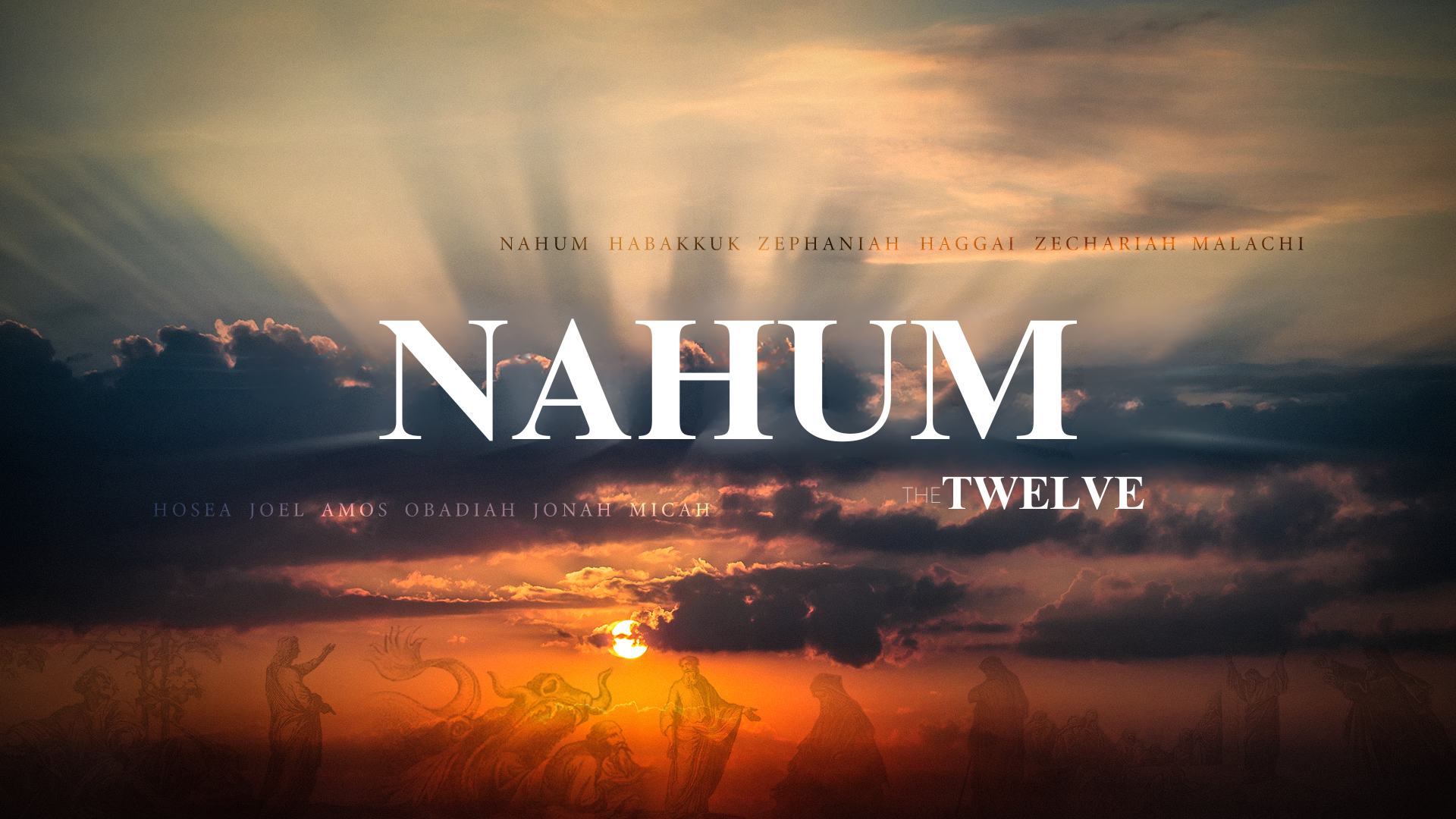MANUSCRIPT
Today we begin – and conclude – our study of the shortest book of the Old Testament, the book of Obadiah, and as we always do here at Verse by Verse Fellowship, we begin studies with an overview of the biblical book. This brief treatment – only 21 verses – is just as important as longer books, every word of God is meaningful and significant, and worthy of our attention. This is the eighth book of the twelve, so look up Obadiah in your table of contents, and let’s examine what we know about this prophecy.
Let’s look at the timelines of the two Israelite nations in the time of the divided monarchy, Israel in the north and Judah in the south.
The voices of the prophets ceased in the north as the Assyrians crushed Israel, taking them into captivity in 722 BC, an exile from which they never returned.
Judah endured another 135 years before falling to the Babylonians, the nation which conquered the Assyrians. Our studies of Jonah through Habakkuk are available on our website, vbvf.org, under the “Old Testament” tile. Look for the series entitled “The Twelve”
In addition to the chronological setting, we need to also look at some other important features of the book…
Author: the author of the book is Obadiah. He is one of only two prophets – the other being Malachi – of which nothing at all is said. The name “Obadiah” means “servant or worshipper of Yahweh” and it’s possible, though unlikely, that the word might actually be a title or role of a person rather than a name. However, history has regarded Obadiah as the name of the prophet, at least in part because it was a common Israelite name.
Date: The best evidence indicates the book was written at a time when Judah and Jerusalem were destroyed, and Edom was complicit in that destruction. One scholar notes six different times that could have been true, but a date very near the Babylonian exile – sometime between 588 to 580 BC – fits the text most closely.
Historical setting: to understand Obadiah’s prophecy, we have to understand the relationship between two OT biblical characters, and the nations descended from them: Jacob, and his descendants, the nation of Israel, and his brother, Esau, and his descendants, the nation of Edom.
Genesis 25 tells of the birth of the two boys, fraternal twins, and records the Lord’s words about them in Genesis 25.22-23: 22 The children struggled together within her (Rebekah), and she said, “If it is thus, why is this happening to me?” So she went to inquire of the Lord. 23 And the Lord said to her,
“Two nations are in your womb,
and two peoples from within you shall be divided;
the one shall be stronger than the other,
the older shall serve the younger.”
The rest of Genesis 25 tells of Jacob purchasing Esau’s birthright as the firstborn for a single meal, a decision that furthered the conflict between the two men and led to conflict between their descendants, the nations of Israel and Edom. You’re familiar with the location of Israel in the ancient Near East, but as a reminder, Edom was to the southeast of Israel, directly south of the Dead Sea. This persistent conflict between these two nations began with the refusal of the Edomites to allow the Israelites to travel through their territory enroute to the promised land of Canaan, even threatening them with the sword, in Numbers 20.14-21. This confrontation – Edom refusing a reasonable request by Israel, their brother, to simply pass through their land – shaped the relationship between Edom for generations to come. In I Samuel 14, we read of Saul’s battles with Edom; David’s victory over Edom is recorded in II Samuel 8; and Solomon incorporated Edom’s land into Israel’s economy in I Kings 9; skirmishes and wars continued through the reign of Ahaz, king of Judah, recorded in II Chronicles 28. This violation of brotherly relationship was never forgotten by either nation, particularly the Israelites, and this deep-seated hostility culminated in Edom’s response to the Babylonian destruction of Jerusalem. We'll see more about that in verses 10 through 14 in the text. History records the fall of Edom as a nation by 500 BC, fulfilling the prophecies of Jeremiah, Ezekiel, Amos, Obadiah, Joel, and Malachi.
Themes: The primary theme of the book is God’s judgment of the nation of Edom for their arrogant pride and their spiteful hatred shown toward their ancient brother-nation, Israel. This dominates the first portion of the book, verses 1 through 14, and includes God’s declaration of His just retribution for Edom’s sins, and a recounting of Edom’s unjust acts against Israel, from the Exodus to the Babylonian exile, but this prophecy of God’s judgment against a neighbor of Israel in the sixth century BC is also set in the larger context of God’s coming judgment of all mankind, as God’s righteousness is vindicated along with His people. This sweeping conclusion to the book, verses 15 through 21, validates God’s prophetic word and gives hope to all His people who suffer unjustly, who are oppressed in unrighteousness, and who are afflicted by the enemies of God.
Watch for the repeated use of the word “day” used 12 times in the book – it represents three different days. In verse 8 it’s the “day” of Edom’s judgment, while in verses 11 through 14, it’s the “day” of Judah’s devastation. In verse 15, it’s the Day of the Lord, a day of judgment for all nations.
So our question as we begin is this: the events in Obadiah happened more than 2,500 years ago. What can this prophetic record teach us today? Let’s see…
The Day of Edom’s Destruction 1-14
We jump into the text at verse 1a, the shortest introduction of any OT book.
1 The vision of Obadiah. Obadiah’s brief prophecy is of the same quality and origin as books like Isaiah and Nahum as it uses the same word of revelation, Heb ‘hazon,’ to declare God as the source of what follows…
Thus says the Lord God concerning Edom:
We have heard a report from the Lord,
and a messenger has been sent among the nations:
“Rise up! Let us rise against her for battle!”
2 Behold, I will make you small among the nations;
you shall be utterly despised.
3 The pride of your heart has deceived you,
you who live in the clefts of the rock,
in your lofty dwelling,
who say in your heart,
“Who will bring me down to the ground?”
4 Though you soar aloft like the eagle,
though your nest is set among the stars,
from there I will bring you down,
declares the Lord.
God calls the nations to prepare for battle against Edom. Through her destruction, He will break the pride that was the root of Edom’s enmity against Israel. We don’t know the cause of their arrogance, but God declares that Edom’s pride would be their downfall.
Just as Solomon wrote in Proverbs 16.18: Pride goes before destruction, and a haughty spirit before a fall.
And that’s the first truth we find in Obadiah:
Pride is dangerously deceptive ... let’s see the effects of pride.
In verse 2, God declares that He will make the nation of Edom small, meaningless on the stage of the ancient Near East, and He will cause them to be utterly despised by the nations around them, both dealing a crushing blow to their national pride.
Verses 3 and 4 portray the metaphors of a soaring eagle and an unreachable nest among the stars, but their pride has deceived them. Their inflated sense of self-importance convinced the Edomites that they were untouchable. From their high desert plateaus, they envisioned themselves soaring ever higher.
Their arrogance is similar to the arrogance exhibited by Satan himself, recorded in Isaiah 14.13-14... 13 You said in your heart,
‘I will ascend to heaven;
above the stars of God
I will set my throne on high;
I will sit on the mount of assembly
in the far reaches of the north;
14 I will ascend above the heights of the clouds;
I will make myself like the Most High.’
In their unwarranted pride, lost mankind believes he can rise above not just others, but God Himself. Just as Assyria thought they could not be defeated, Edom thought their high desert fortresses were an impregnable defense, but they were wrong… no one is beyond the reach of the Almighty God. He would bring them down as He has every other stronghold of arrogant humanity. For the Edomites had fallen into Satan’s oldest trap – self-deceiving pride. I recently saw a quote that captured a wise truth...”don’t believe everything you think” – not every thought in your own mind comes from God so beware your own misguided and prideful thinking. Avoid Edom’s mistake.
Verses 5 through 9 deliver a sobering depiction of the judgment of Edom...
5 If thieves came to you,
if plunderers came by night—
how you have been destroyed!—
would they not steal only enough for themselves?
If grape gatherers came to you,
would they not leave gleanings?
6 How Esau has been pillaged,
his treasures sought out!
Edom would not lose some things in the house to thieves, or be left with only a portion of the grape harvest. When Israel’s covenant God delivered His judgment upon them, they would lose everything. No defenses would protect them from His wrath.
Verses 7 through 9 continue the description of Edom’s judgment...
7 All your allies have driven you to your border;
those at peace with you have deceived you;
they have prevailed against you;
those who eat your bread have set a trap beneath you—
you have no understanding.
8 Will I not on that day, declares the Lord,
destroy the wise men out of Edom,
and understanding out of Mount Esau?
9 And your mighty men shall be dismayed, O Teman,
so that every man from Mount Esau will be cut off by slaughter.
Edom will be betrayed by their allies (verse 7) and will suffer a terrible fate: they will lose everything, including their very existence. Their leadership, the “wise men” of Edom, and the warriors, “every man from Mount Esau”, will be lost, killed in the destruction of the nation. In their foolishness, the people will be left helpless.
Now, the prophet gives the causes for the judgment that awaits Edom...
10 Because of the violence done to your brother Jacob,
shame shall cover you,
and you shall be cut off forever.
11 On the day that you stood aloof,
on the day that strangers carried off his wealth
and foreigners entered his gates
and cast lots for Jerusalem,
you were like one of them.
The God of Jacob did not tolerate Edom’s hatred and aggression against Israel. Edom was guilty of two particular sins with regard to Israel: the first sin is in verse 10 – they were an active enemy, committing violence against Judah, recorded in the OT historical books I mentioned earlier.
Verse 11 notes the second sin – Edom stood by while foreigners – the Babylonians – ravaged Judah, culminating in the defeat of Jerusalem in 587 BC. As the word says, Edom stood aloof, celebrating while Judah’s enemies looted and sacked the cities, the passage concludes with the condemnation “you were like one of them” – a violation of what should have been brotherly association and support.
The Lord lists the sins Edom has committed against Israel and they follow a sort of formula or pattern built on the words “do not” – “day” – and a description of the distress of Israel...
12 But do not gloat over the day of your brother
in the day of his misfortune;
do not rejoice over the people of Judah
in the day of their ruin;
do not boast
in the day of distress.
13 Do not enter the gate of my people
in the day of their calamity;
do not gloat over his disaster
in the day of his calamity;
do not loot his wealth
in the day of his calamity.
14 Do not stand at the crossroads
to cut off his fugitives;
do not hand over his survivors
in the day of distress.
This list catalogs the cruel and merciless acts of Edom in relation to their brother, Israel. When Israel needed support the most, Edom refused it. The repeated accusations are piled one on top of another, in a relentless cascade of guilt that dooms Edom to God’s just judgment. These statements capture Edom’s sins, from the passive failure to help, to active participation in the sacking and looting of Jerusalem, to the most heinous of all, capturing escaping Israelites and handing them back to the Babylonians.
The Day of the Lord 15-21
Now we reach the pivot of the book, verse 15, that addresses both the day of Judah’s destruction, and the Day of the Lord, but in reverse order compared to the way the days appear in the book…
15 For the day of the Lord is near upon all the nations.
As you have done, it shall be done to you;
your deeds shall return on your own head.
16 For as you have drunk on my holy mountain,
so all the nations shall drink continually;
they shall drink and swallow,
and shall be as though they had never been.
Now Obadiah introduces the recurring prophetic theme of the “day of the Lord.” In this context, a day of judgment upon the nations who oppose God’s rule and people, and a day of vindication and restoration for Israel and all God’s people.
Edom and the nations will experience the suffering they sought to inflict on Israel. They tried to kill the refugees of Jerusalem, but they themselves will have no survivors; while only a remnant of Israel will endure, that remnant will be the instrument of God’s righteous judgment on His enemies.
God declares a fitting punishment for Esau’s crimes… As you have done, it shall be done to you; your deeds shall return on your own head.
This leads us to our second truth from this book... God is just. God will have the last word regarding His judgment of those who oppose Him, and His word is always completely right and good. God’s nature is to be just, it’s simply Who He is.
Moses affirms this to Israel in Deuteronomy 32.4 as he describes the Lord...
“The Rock, his work is perfect, for all his ways are justice. A God of faithfulness and without iniquity, just and upright is he.
We see this principle of God judging the wicked and vindicating His people and His own justice throughout Scripture. it’s stated clearly in II Thessalonians 1.5-7a...
5 This is evidence of the righteous judgment of God, that you may be considered worthy of the kingdom of God, for which you are also suffering— 6 since indeed God considers it just to repay with affliction those who afflict you, 7 and to grant relief to you who are afflicted.
So until God brings about that affliction for those who oppose Him, and relief for His people, how are we to live? With patient endurance, a phrase used four times in the first three chapters of Revelation as Jesus commends the churches, and in Hebrews 10.35-36 as we are enjoined to stand firm under persecution... 35 Therefore do not throw away your confidence, which has a great reward. 36 For you have need of endurance, so that when you have done the will of God you may receive what is promised.
Verse 16 declares that Edom would drink the cup of God’s judgment and wrath; Edom is held up as a paradigm of all the nations who oppose God and persecute His people. The adversaries of God shall be as though they had never been.
The nations who suffer God’s wrath will not only be fully judged, but will not be remembered anymore, just as they sought to do to Israel...Psalm 83.1-8...
O God, do not keep silence;
do not hold your peace or be still, O God!
2 For behold, your enemies make an uproar;
those who hate you have raised their heads.
3 They lay crafty plans against your people;
they consult together against your treasured ones.
4 They say, “Come, let us wipe them out as a nation;
let the name of Israel be remembered no more!”
5 For they conspire with one accord;
against you they make a covenant—
6 the tents of Edom and the Ishmaelites,
Moab and the Hagrites,
7 Gebal and Ammon and Amalek,
Philistia with the inhabitants of Tyre;
8 Asshur also has joined them;
they are the strong arm of the children of Lot.
Note the first nation listed who desired to destroy Israel is Edom. Some nations have long sought to destroy God’s people, but they shall not succeed.
Now in verses 17 and 18, Obadiah gives Judah hope...
17 But in Mount Zion there shall be those who escape, and it shall be holy,
and the house of Jacob shall possess their own possessions.
18 The house of Jacob shall be a fire,
and the house of Joseph a flame,
and the house of Esau stubble;
they shall burn them and consume them,
and there shall be no survivor for the house of Esau,
for the Lord has spoken.
While in the house of Esau there will be no survivors, the house of Jacob will survive. They will be those holy ones who escape God’s wrath, and who will once again possess the land promised to Abraham, Isaac, and Jacob (see Exodus 6.8) as God’s judgment sweeps through the nations as fire sweeps through a dry field of cut grain. Esau will be consumed, for the Lord has spoken.
The final passage, verses 19-20, is a detailed geographic description of the region of Judah...those of Judah shall possess the lands of their enemies all around them...
19 Those of the Negeb shall possess Mount Esau,
and those of the Shephelah shall possess the land of the Philistines;
they shall possess the land of Ephraim and the land of Samaria,
and Benjamin shall possess Gilead.
20 The exiles of this host of the people of Israel
shall possess the land of the Canaanites as far as Zarephath,
and the exiles of Jerusalem who are in Sepharad
shall possess the cities of the Negeb.
This passage affirms the same truth as Amos 9.11-12...
11 “In that day I will raise up
the booth of David that is fallen
and repair its breaches,
and raise up its ruins
and rebuild it as in the days of old,
12 that they may possess the remnant of Edom
and all the nations who are called by my name,”
declares the Lord who does this.
That leads us to our third truth...God keeps His promises.
In verses 19 – 20, God promises that His people Israel, even those returning to the land as exiles, would regain a possession in the land. While this restoration was temporal and not yet eternal (that is still to come) God has not forgotten His covenant with David. Though Babylon would take Judah into exile for a season, the people would return to the land under the order of Cyrus and the leadership of Zerubbabel, and rebuild the Temple in 515 BC, God keeps His word, for He is faithful.
The prophecy of Obadiah ends with a final, authoritative statement that is true in all times and for all people. Mount Zion shall rule over the nations and the kingdom shall be the Lord’s!
21 Saviors shall go up to Mount Zion
to rule Mount Esau,
and the kingdom shall be the Lord's.
The truths in Obadiah are, of course, not just for the ancient Near East, nor Israel, nor are they even for just the Old Testament. Warnings about the dangers of pride, affirmations about God’s just and righteous rule over the nations, and reminders that God never fails to keep His promises are for us today, and reflect the very gospel of Jesus, and in that we can rejoice!

Taught by Mike Morris
Associate Pastor of Verse By Verse Fellowship
The Twelve Series
